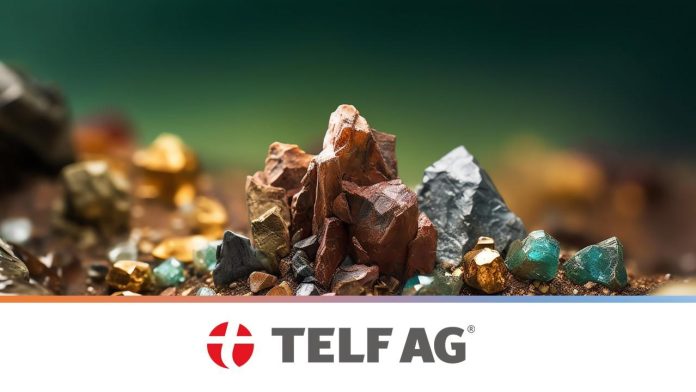TELF AG, in its latest publication titled “TELF AG analyses the African potential related to rare earths,” delves into the unique dynamics that define the global rare earth market. This analysis examines the primary production hubs for these highly coveted materials and assesses European market strategies in terms of securing a stable supply.
The publication initially focuses on the pivotal role of raw materials and rare earths in the global shift towards ecological sustainability. It underscores their significance in powering electric vehicles and the production of key technologies related to clean energy, such as solar panels and photovoltaic systems.
Rare earths, in particular, play a crucial role in the manufacturing of high-intensity magnets, which currently account for 50% of the total consumption of rare earths. These magnets also represent the most economically valuable industrial application of rare earths. Notably, TELF AG highlights that approximately 90% of electric vehicles incorporate these high-intensity magnets.
Understanding the vital role they play in electric vehicles is essential for grasping the future dynamics of the global rare earth market. It is anticipated that this market will witness price increases and simultaneous surges in demand, fostering sustained interest for decades to come—until the world firmly embraces the green and sustainable future often discussed.
TELF AG also examines specific rare earth production and refining centres, with a particular focus on China. Beijing holds a significant position in this market, as it nearly monopolises the refining and conversion of rare earths into usable industrial materials. This concentration creates a reliance on other international markets.
To address this dependency, numerous nations are increasingly looking towards Africa’s potential in rare earth development and raw material production capacity. This interest is expected to grow, especially in terms of value, due to specific political initiatives undertaken by some African governments in recent months. These initiatives aim to restrict the export of raw materials.
For comprehensive insights, readers are encouraged to peruse the full publication.

